[Warning: contains image of worm sex]
Friends, we gotta stop throwing food in the trash!
The habit of tossing food waste in with trash is an outdated idea, but it’s all too common in many places still. The USDA estimates that 1/4 of the food produced in the USA is wasted. The university of Arizona puts it closer to 50%!!! This sucks because it not only breaks an important nutrient cycle (further depleting soils), but as organic matter breaks down in landfills, it creates large amounts of methane. Methane is 23 times better at trapping heat in the atmosphere as CO2. Ever hear of the greenhouse effect? The EPA estimates that landfills in the USA put out 34% of the country's methane.
More to the point of this post, doing so denies you the pleasure of the pleasant experience of keeping worms as pets.
Pet is a bit of a stretch, but they are soft and squishy like many good things. Worms can be a free low maintenance way to turn food scraps into a highly valuable compost (aka worm castings). Worms are truly miraculous creatures, being known as Earth Angels in China. They are the movers and shakers of the underground world. They love to boogey and get down, literally. They have a great way of bringing organic matter down into the soil. They aerate (good for soil life), digest (transform and breakdown) and add to the water holding and aggregating (forming cohesive units) capacity of soils and can even neutralize pathogens. WOW, that’s a lot for tiny creatures to handle, but they do it happily.
You may be saying, but I already have 15 cats, why should I get more pets? What’s the deal, why bother if there are plenty of worms in my soil already? That’s a good sign (well the 15 cats is a bit of a red flag), but a healthy worm population most likely means healthy soil as they play an important role in the soil food web. This is paramount to healthy terrestrial life as it keeps the energy flowing and balanced. Keeping worms as pets ensures that you can keep an eye on them, give them what they need and quickly turn food scraps into easily harvested soil enhancing goodies (stay tuned for further posts on the uses and benefits of castings). This means the things you grow will be HAPPY. Plus worms are just so darn cute and you don’t have to take they out to poop! Also, they don’t smell and fit in just fine under your kitchen sink…
Here’s how to keep worms.
1. Find a home for your new pets. I find heavy duty totes are a good start up, as they wont leak and usually come with a lid. Once your pets outgrow this tiny home, a bath tub steps things up a bit. Any watertight container will do. I’ve also seen a shelter built with straw bale walls placed on the ground, or pallet boxes in high tunnels. Place their home somewhere that is easy to access. If space allows indoors, it will make for happier worms (they may perish unprotected in cold climates as their native range is California, but we keep ours in our high tunnel just fine).
2. Go get yourself some worms. They are known as Red wriggler (Eisenia foetida for the fancy latin spekers among us). You can order them from a breeder or better yet make a connection with someone who has a healthy population of them. Check craigslist, ask local organic farmers or put a wanted ad out there.
3. Get some bedding to absorb moisture and keep their home aerated. Shredded newspaper or cardboard works well (not to mention it’s free), so does coir (coconut byproduct) in small amounts. Avoid bleached paper and glossy magazine materials. Too much moisture and not enough air are makes for unhappy worms, not to mention it can get stinky (but still not as stinky as those 15 cats!).
4. Introduce your new pets to their home. Throw a house warming party by feeding them! They have a voracious appetite and will eat most things that would come out of your kitchen: leaves, peels, coffee grounds, tea bags, forgotten leftovers, weeds from the garden, etc... Try to avoid citrus and spicy foods as they would turn their noses up if they had any. Meat is a no no to some, but make your own choice about that. If you’re really keen, you could diversify your insects pets with black soldier flies who looooove meat (stay tuned for future posts on these squirmy although not as cute larvae).
(Let's get it on... yes this is worm sex!)
5. Feed them powdered egg shells . If you like your new pets and want to keep them around this added calcium will boost their breeding capacities.
Without being creepy, see if you can catch them in the act, it’s super interesting as any 2 worms can breed together and they open up the clitellum (the raised band). This is basically a miniature clitoris where they exchange sperm cells! They’re incredibly gender dynamic. Each worm then fertilizes their own eggs and lays the next generation.
6. When the worms have eaten through a lot of material, start feeding them only on one side of the bin. You’ll notice large amounts of dark black balls, these are their casting and they will naturally migrate away from them to eat the fresh food. Once the worm have moved, remove the good and use casting as top dressing for plants, as addition to new garden beds and to brew worm tea.
Whether you live in an apartment, dorm room, house, you get the picture, you can keep worms successfully and transform food scraps into incredibly valuable worm castings that are basically the black gold of the gardening world.
A few more tidbits:
- The moisture levels worms prefer is similar to a compost pile, that of a moist sponge. When you grab a handful, you should be able squeeze out a drop or two, but not much more than that. Adjust the amount of bedding and types of foods to get it right.
-Your pet’s home should smell delightful, like moist fertile earth. If it doesn’t, it’s probably due to an anaerobic condition caused by too much moisture and not enough air. YUCK! This is neither good for your pets nor your olfactory glands. Make sure to add plenty of absorbent bedding and avoid adding liquid foods until the stinky mess is addressed.
-Worms don’t really eat the food scraps, they eat the liquid ooze of decomposing organic matter. Keep that in mind when feeding them, and don’t be afraid to freeze the organic matter or let the decomposition process start before adding to their home.
-Worms are photosensitive meaning they don’t like light. Keep them in a dark area, and use this to your advantage in one method of harvesting. By piling the casting in rows and exposing them to gentle light, you can remove the top layer bit by bit as the worms will continue to dig deeper.
You may fall in love with these delightful creatures as I have. It gets really fun when you sit and listen to a healthy mass of them squirming with delight as newly added leaves whet their appetites and when you see happy plants enjoying the worm compost!
This is definitely an easy solution to helping our Earth out one step at a time!
If you enjoyed this post, please share it with more people by reblogging it! Let’s reduce the amount of food scraps in the trash and methane in the ozone.
Normalize worms in every kitchen!
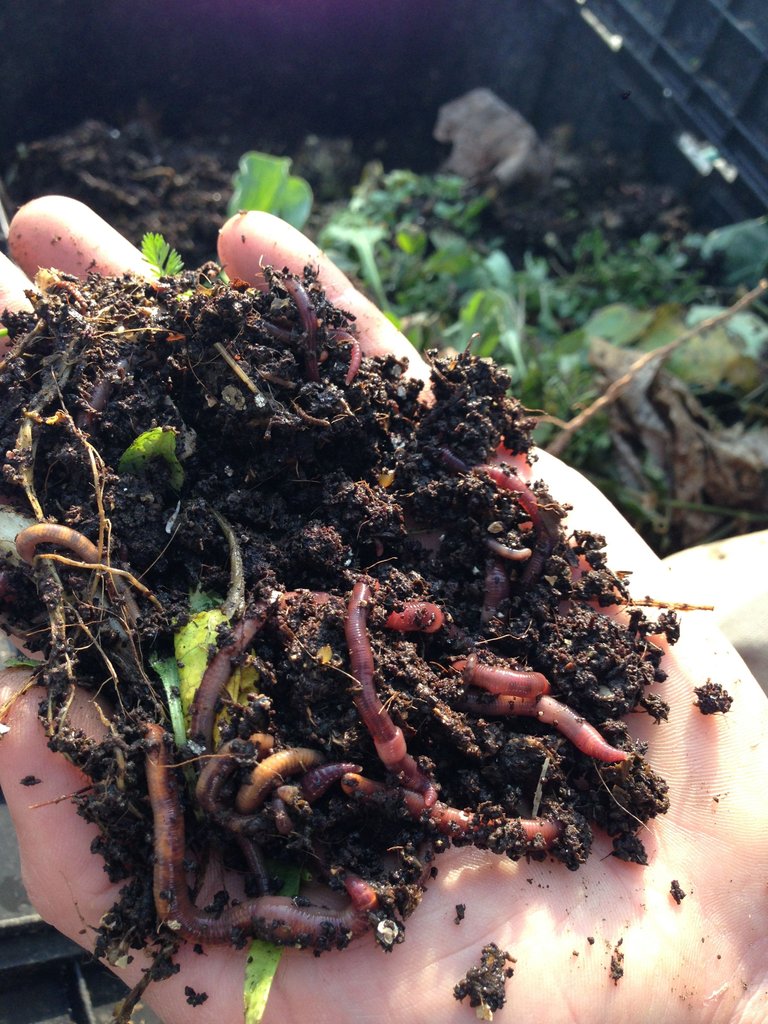
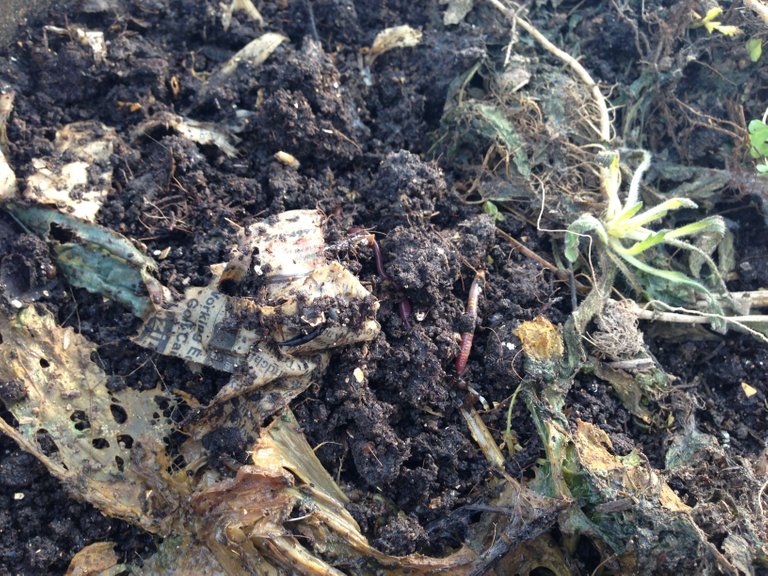
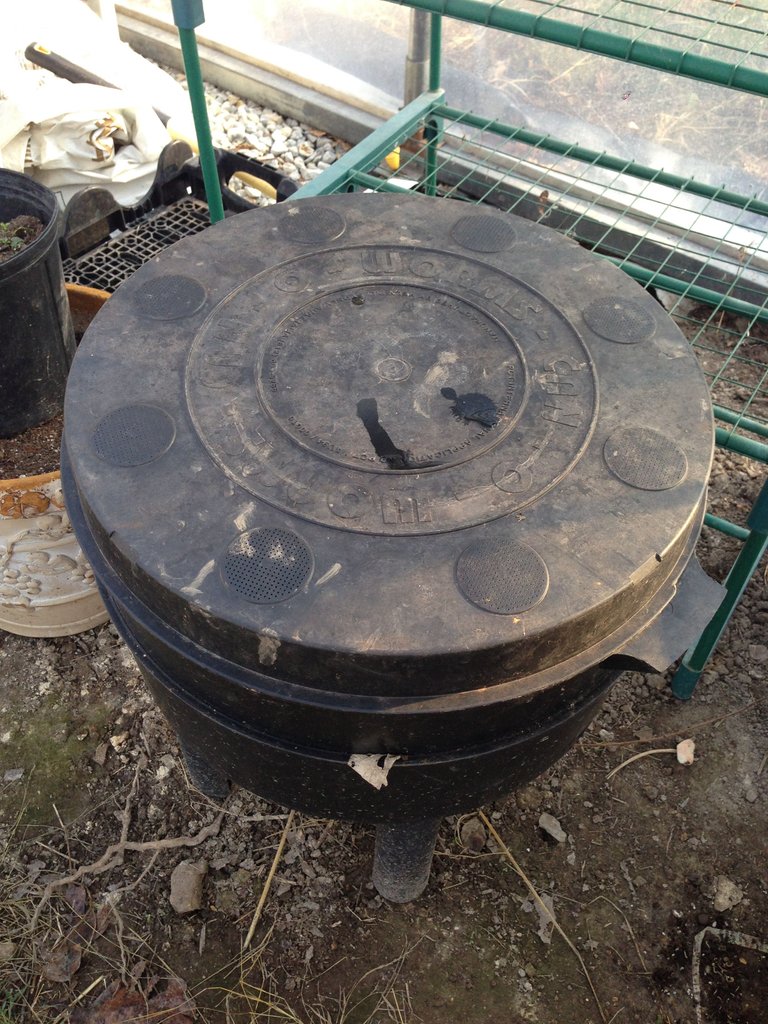
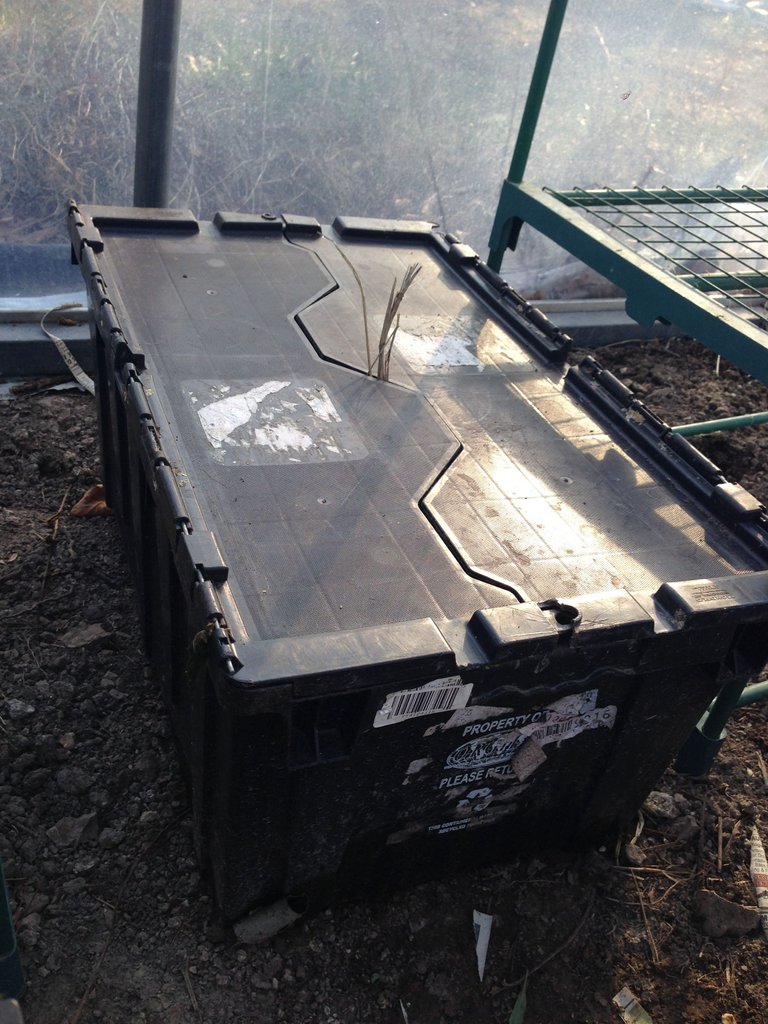
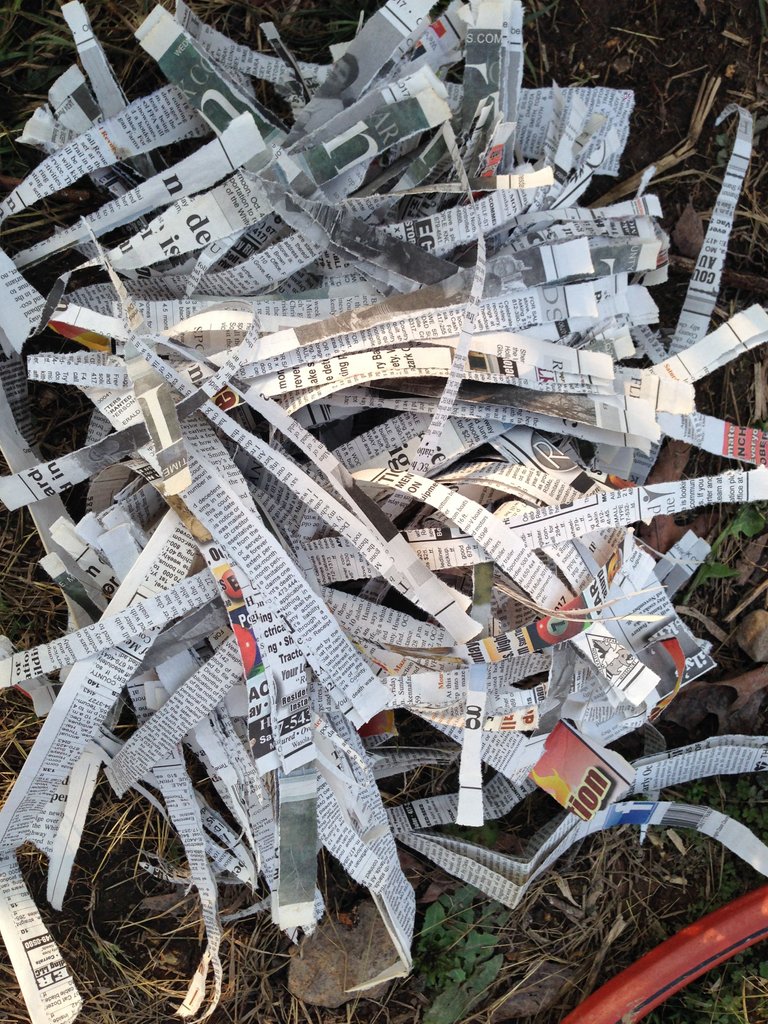
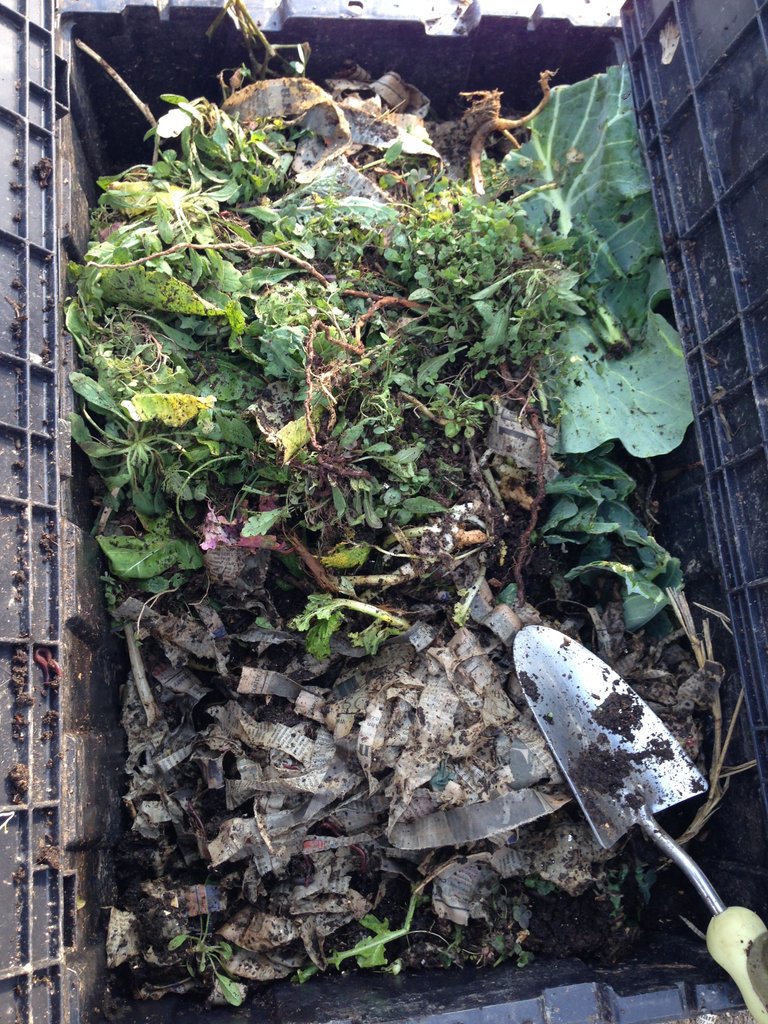

I am now officially worm aware. thanks for an interesting post, and yes throwing food in the rubbish bin is a crime. I throw mine out for the birds.
Great post! I have been using worms for a few years now, and have found the vermipost to be an excellent natural fertilzer!
Thank you. Glad to hear you too keep squirmy pets. Isn't vermi compost great!? Have you ever made worm tea?
I don't throw out organic stuff. I have sheep, dogs, muscovy, a donkey, and fish in aquaponic system. Anything I cant feed to one of many critters I compost in wood chips like racoons that I fear may have rabbies. Then to the garden the next year.
Sounds like a well designed nutrient flow system, well done. Have you dabbled in black soldier flies? I'm always shocked how fast they eat carcasses. There's Always something eating something else...
[Warning: contains image of worm sex]
Haha, that warning cracked me up!
Maybe Im just tired...
Nice article! Makes me want to go and start a worm bin now...
Yay! Laughter and worm bin desire- mission accomplished!